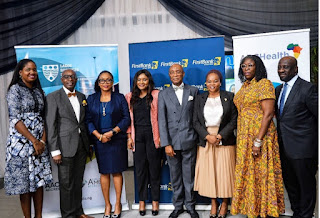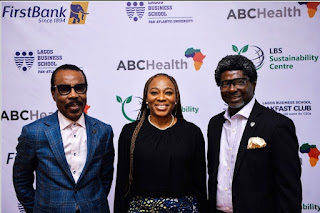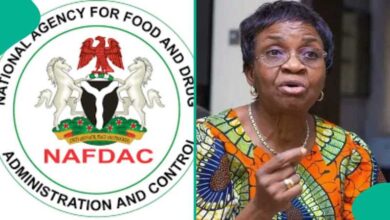Group Highlights Need To Close Gaps In Nigeria’s Healthcare Sector

The Lagos Business School Special Breakfast Club in partnership with the African Business Coalition for Health (ABCHealth) and supported by the LBS Sustainability Centre, hosted members of the organised private sector during its monthly breakfast session series, November edition, which focuses on critical sectors of the economy.
This month’s breakfast meeting themed ‘New Opportunities in Sustainable Health Investments’ focused on the healthcare sector and the abundant opportunities that abound in that space for long term investments.
The event took place in Lagos with LBS Alumni members, C-suite executives, business leaders and friends of LBS in attendance.
The discussions at the meeting focused on the potential of private sector-led actions to revolutionise health care delivery at all levels in Nigeria.
The conversations served as a catalyst for long-term health solutions driven by sustainable investment models, with the aim of transforming healthcare service delivery not only in Nigeria but across the entire continent.
The Key contributions were delivered by Dr Olusoji Adeyi, President, Resilient Health Systems, and Dr Lesley-Anne Long, President/CEO, GBC Health.
They zeroed in on the challenges, impact and business opportunities in Nigeria’s Healthcare and Health Services Sector and urged the private sector in attendance to mobilise domestic resources to build a healthcare architecture that will create health resilience for the country and the continent.
To give an economic reality check, Bismarck Rewane, CEO, Financial Derivatives Company Limited also shared pointers on the general outlook of the economy. Other esteemed speakers at the meeting were the CEO, Aliko Dangote Foundation, Zouera Youssoufou and the CEO, ABCHealth, Dr Mories Atoki.

Citing the Doing Health Index (DHI), Dr Oluseyi Adeyi said “Nigeria is a Low-Middle Income Country (LMIC) that ranks 20th out of Africa’s 54 economies in terms of Gross National Income (GNI per capita) yet ranks 46th out of Africa’s 54 countries on the DHI. Its score approximates the performance of Niger and Liberia.
“Nigeria is the only LMIC economy to score below 50%. Measured on GNI per capita, Nigeria, has at least triple the level of income per capita of all but one of the 10 African countries that scored below 50%. Southern Africa is the continent’s highest scoring region, with an aggregate country score across all 4 categories of 73%. Nevertheless, scores vary between the different categories: from a high of 84% (for Affordability) to a low of 61% (for Architecture), a 23-point swing.”
He further pointed out that 14% of all global business opportunities in the health sector are in Africa, and between 2010 and 2020, Africa’s pharmaceutical industry grew at 10% annually. Also, the African population of 1.3 billion and a GDP of $3.4 trillion creates economies of scale for pharmaceutical production and trade.
Lesley-Anne Long in her presentation earmarked the challenges plaguing our healthcare sector such as infrastructure, digital health and health inequality.
She added that investing in your health makes sense for business, boosting the brand, bottomline and market share via innovation.
She spotlighted global case studies and identified the opportunities for collaboration that exist in the health space.
Despite previous efforts, obstacles such as inadequate funding for infrastructure and healthcare workers’ welfare, limited coverage in rural areas, and isolated actions have hindered significant progress.
It has become imperative to design and implement new models that improve health outcomes at all levels of healthcare, providing high-quality services that adhere to global standards in an economically and socially sustainable manner. Overall, the meeting provided invaluable perspectives on shaping the future of healthcare in Nigeria




